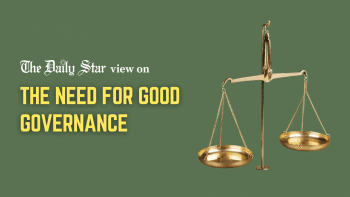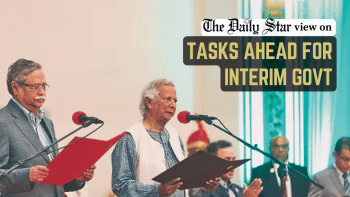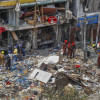Absconding mayors have created a crisis, but also an opportunity

We are quite concerned about the mounting suffering of people across the country due to disruptions in the services of city corporations and municipalities in the absence of top functionaries. Reportedly, nine city mayors out of 12 are in hiding, while 205 municipal mayors out of 330 are also on the run. The situation is the same down the ladder, with 44 zila parishad chairmen out of 64 and 319 upazila parishad chairmen out of 495 also in hiding. In Dhaka, among the 129 councillors spread across both wings of the city, 118 are missing. Similar absences have also been noted in other cities as well.
These public representatives have gone into hiding after the fall of the Awami League government in the face of a mass uprising led by students. Their escape, out of security concerns, is understandable since all of them were Awami League leaders, but it also shows how disastrously imbalanced the power structure was so far, with an overwhelming majority of these important positions filled by one party, leaving little space for rival parties who could have served under the present circumstances. The mass escape has not only created a sudden power vacuum, but key services are also being disrupted, especially in city corporations.
Among the services that residents get from city corporations are street lighting, waste management, mosquito control, birth and death registration, etc. In Dhaka, the responsibility of sewage management was also handed over to the city corporations. Many city roads still remain broken and unclean since August 5. There is then the challenge of fighting dengue, which needs exemplary leadership given the debacle of last year's dengue season. There are many such issues and grievances that public representatives are expected to engage on and address.
Against this backdrop, we welcome the interim government's decision to give full mayoral responsibility to the chief executive officers (CEO) of the city corporations, which will take care of the operational side of these institutions. We think the authorities should also make a decision about the municipalities and local parishads soon. Having administrative officers at the helm of these bodies comes with the expectation that they will perform better and more honestly than political recruits, which they should be able to fulfil. That said, the need for having public representatives directly connected with the grassroots levels cannot be ignored either. Whatever the administration does to weather these challenging times, it must ensure good governance and build a proper system for future functionaries.


 For all latest news, follow The Daily Star's Google News channel.
For all latest news, follow The Daily Star's Google News channel. 










Comments